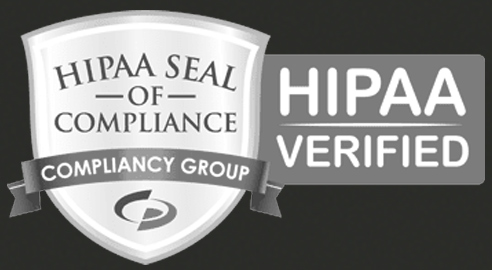
Pricing vision correction: Are you fighting a war on two fronts?
One of the most common questions we hear from our clients is about the pricing of vision correction. Should you price high or low relative to your competitors? How should you go about setting your prices? What’s the difference between cost, price and value? When should you raise or lower your prices? How does price affect consumer psychology?
Pricing is a marketing strategy
The most important thing to consider when pricing your services is that pricing is a marketing strategy (as opposed to solely a financial or accounting strategy) that involves three considerations:
- What and how you charge has a psychological impact on your market’s choices and how they view your offering.
- Price, cost and value are three distinct concepts that should not be confused.
- Failure to set prices that cover your fixed and variable costs can lead to disaster, but you should not set your prices according to your costs
In this and the next few posts, we’ll discuss the three topics above and provide advice on using different pricing tactics, using “cost-plus” versus “value-based” pricing, and raising or lowering prices.
Before that, let’s consider pricing and competitive strategy.
Most competitors choose the middle due to having no pricing strategy at all. This often creates the worst of both worlds by fighting a war on two fronts: a failure to expand market share by competing against lower-priced providers and failing to invest in improved products and services by competing against profit creamers.
Pricing and competitive strategy is a game of extremes
It’s important that you have a clear view of what your competitors are charging for similar products and services. Most of your competitors will share their prices on their websites or answer questions on the phone relating to pricing. If not, it’s worth mystery-shopping them.
While it’s important to understand the competitive landscape, it’s equally important not to be a slave to it. Setting your prices significantly higher or lower than the competition may be unwise. You may leave profit on the table if your prices are too low. If your prices are too high, you must accept that your services may exceed the mass market’s budget.
As your business model is aligned with your pricing strategy, you can be successful at both extremes.
Penetrating and creaming the vision correction market
Penetration competitors keep prices and costs low to increase profit and will sometimes benefit from the advantages of scale and volume.
With sufficient volume, they can grow quickly and increase their market share, generating considerable overall profits by penetrating the market.
If you have significant investment behind your venture, you may “buy the market” in such a fashion for a limited period of time to achieve the market share you desire.
This strategy can be useful when offering products or services that can be “commoditised for the mass market” and therefore relies on a relatively high degree of marketing communications reach.
The larger players usually favour this strategy in a competitive marketplace. Once the desired market share is gained, penetrators can increase their prices to increase their profits.
Creaming competitors keep prices high to increase profit and will have the opportunity to consistently increase their quality and service levels through innovation.
If you must pay back your investment quickly, setting high prices will enable you to skim the profits from your products and services. This is called creaming the market.
This strategy involves reimbursing the cost of a start-up investment by focusing on “early adopters” who are ready to pay a premium price to try new (read: innovative and leading edge) products or services.
With creaming, fewer sales are needed to break even. This, however, does not suggest that you don’t have to “sell”. Selling a creaming price can be considerably more challenging than selling a penetration price because you must demonstrate higher value.
This is the strategy that the smaller players usually favour in a competitive marketplace. Once the desired return on investment is secured, creamers can lower their prices to increase their market share.
NOTE: The best way to answer that nagging question about practice growth or marketing or patient volume in the back of your mind is to book a free 15-minute compatibility call. Get some options and go away with a clear idea of what’s possible.
Which pricing strategy should you choose?
Penetration and creaming pricing strategies are the two most extreme strategies, and depending on your circumstances, you can be extremely successful with either strategy. The following considerations should influence your decision:
- your target market
- your market area; affluence and psychographic makeup
- the competitors in your market and their pricing approach (and likely response to your strategy)
- your business model and capabilities
- your business goals and boundaries
- your desire to expand your market share
- your desire to expand your profits
- your investment makeup and payback demands
- the lifecycle stage of your product or service
Most competitors choose the middle as a result of no pricing strategy at all. This often creates the worst of both worlds by fighting a war on two fronts: they fail to expand market share by competing against lower-priced providers, and they fail to invest in improved products and services by competing against profit creamers.
Pricing your vision correction somewhere in the middle of the market can be an appropriate place to start. However, you would be well advised to consider systematically moving towards one of the ends of the markets if you want to take advantage of the benefits of an aligned pricing strategy.
NOTE: The best way to answer that nagging question about practice growth or marketing or patient volume in the back of your mind is to book a free 15-minute compatibility call. Get some options and go away with a clear idea of what’s possible.
About the author

Rod Solar
Founder & Scalable Business Advisor / fCMO
Rod Solar is a co-founder of LiveseySolar and a Scalable Business Advisor for its customers. Rod mentors and coaches eye surgery business CEOs/Founders and their leadership teams to triple their sales, double their profit, and achieve their “ideal exit”.
Related Posts
Meet our Co-Founders
We’re passionate about helping leaders of high-quality, growth-minded practice owners double their practice revenue

Rod Solar
Founder & Scalable Business Advisor
For over 20 years, I’ve helped ophthalmology entrepreneurs scale their private practices. I specialise in doubling revenue within three years by offering a proven framework, hands-on experience, and a team of experts who implement what works. We take the guesswork out of growth and scale, so you can focus on delivering exceptional patient care while maximising the value of your business.
LiveseySolar completely transformed the way we were approaching this… We’ve gone from having just the dream of having a practice to having a practice up and running with people making inquiries and booking for procedures… It’s extremely pleasing. We feel lucky we connected with LiveseySolar.
— Dr Matthew Russell, MBChB, FRANZCO, specialist ophthalmic surgeon and founder of VSON and OKKO

Laura Livesey
Founder & CEO
I’m the co-founder & CEO of LiveseySolar. I’ve developed powerful eye surgery marketing systems that increase patient volumes and profits for doctors, clinics, and hospitals, since 1997.
Rod and Laura know as much about marketing surgery to patients as I know about performing it. They are an expert in the field of laser eye surgery marketing. They know this industry inside out. I believe that they could help many companies in a variety of areas including marketing materials, sales training and marketing support for doctors.
— Prof. Dan Reinstein, MD MA FRSC DABO, founder of the London Vision Clinic, UK











